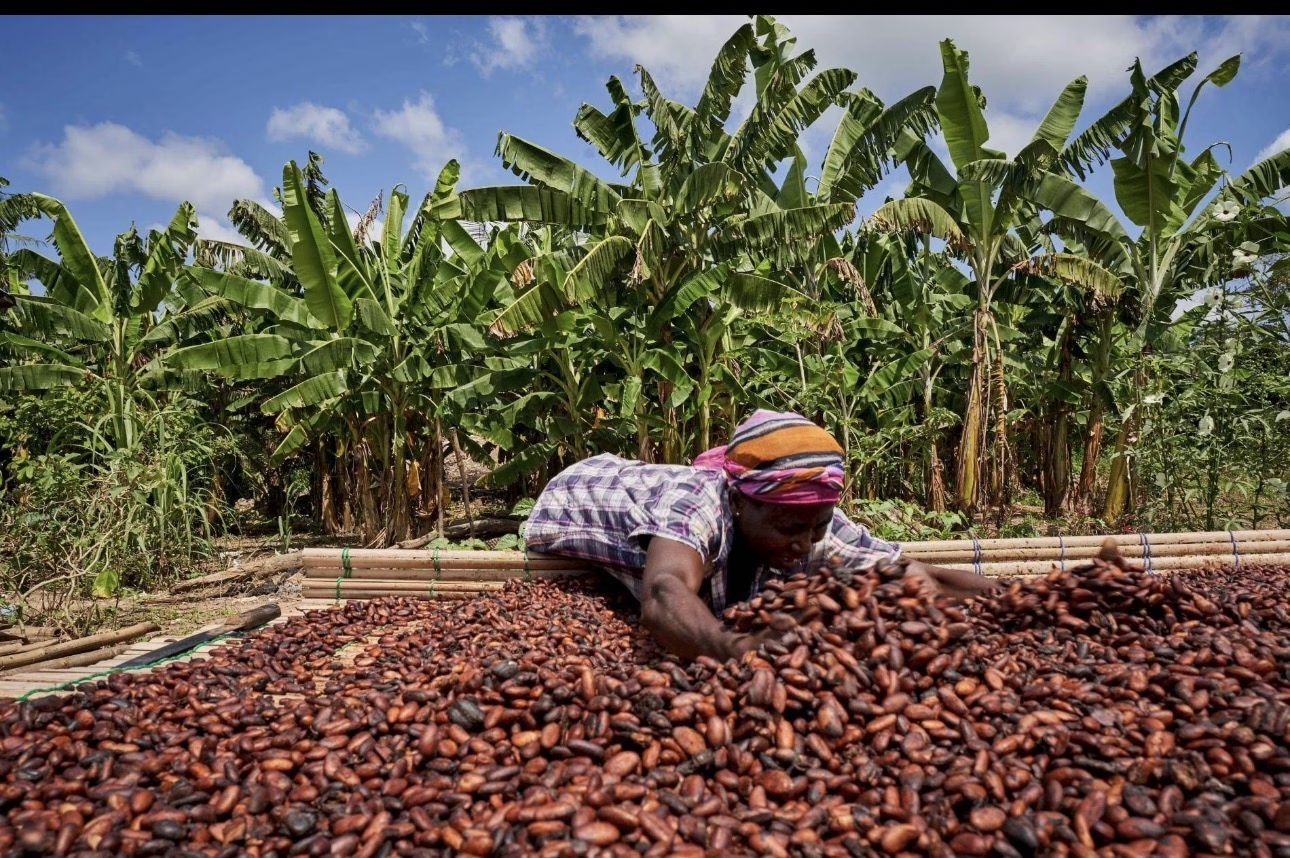Cocoa Farmers Slam “Insignificant” Price Hike — Accuse Mahama of Betrayal

Cocoa farmers across Ghana have reacted with anger to the government’s announcement of a new cocoa price for the 2025/2026 season, insisting the increment is still inadequate and does little to address their hardships.
The government and COCOBOD have set the new producer price at GH₵3,625 per 64-kg bag, equivalent to GH₵58,000 per tonne, effective Friday, October 3, 2025. This represents a 12.27% increase over the GH₵3,228.75 per bag price announced just two months ago in August.
Farmers Say Increment Fails to Match Rising Costs
While officials tout the rise as proof of government’s commitment to farmer welfare, many farmers say they feel “shortchanged.”
“This is insignificant compared to what we spend on fertilizer, labour, transport, and chemicals,” a farmer in the Western North Region told Nsemgh. “Even though they have added GH₵396 more per bag, our input costs have doubled. This is no relief.”
They argue that despite the increment, farmers are still receiving less than the promised 70% share of the Free-On-Board (FOB) price, a pledge President John Mahama reiterated during his campaign.
By farmer calculations, if the 70% benchmark were being honored, each bag should fetch GH₵4,000 or more, not GH₵3,625.
Broken Promises & Political Fallout
Farmer groups have accused Mahama of betraying their trust. “Mahama lied to us during his campaign,” one union leader fumed. “He promised fair prices, but what we see now is politics at the expense of farmers.”
Some have hinted at protest actions, while others warn of smuggling to Ivory Coast and Togo, where they claim better farmgate prices are being offered.
“The four years is not far,” another farmer warned. “We will show the NDC at the polls. Farmers will not be taken for granted again.”
Analysts Warn of Consequences
Experts say the political stakes are high. Cocoa remains Ghana’s top export and the lifeline for over 800,000 households. If discontent among farmers deepens, the NDC government risks losing crucial support in cocoa-growing regions.
At the same time, economists caution that persistent farmer dissatisfaction could fuel smuggling, reduce production, and weaken Ghana’s already fragile foreign exchange reserves.
www.nsemgh.com

